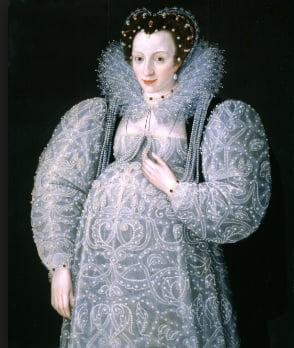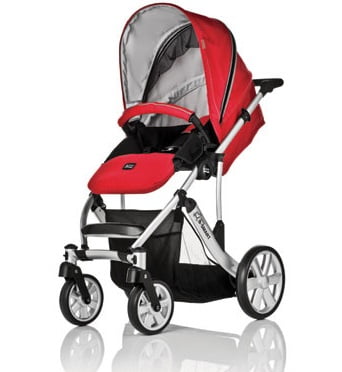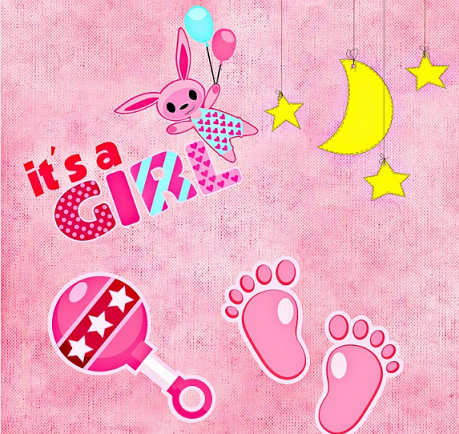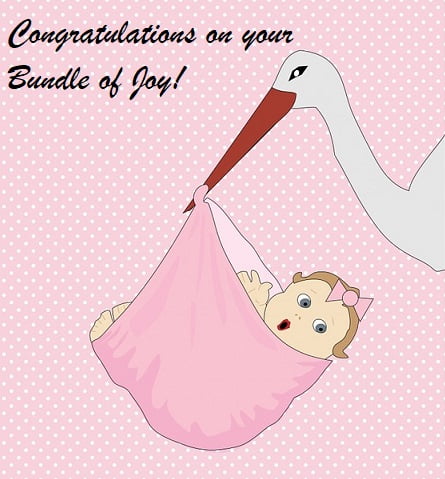The Duchess of Sussex has given birth to a baby girl! Lilibet “Lili” Diana Mountbatten-Windsor was born on Friday 4th June in Santa Barbara, California. Lili is little sister to Archie. The Duke and Duchess named their newborn after the Royal Family’s nickname for the Queen, Lili’s great-grandmother. Her middle name is in honour of Diana Princess of Wales, her late grandmother.
Pregnancy and baby vocabulary is always useful to learn for dealing with situations related to families, doctors and women’s health. Join us to explore vocabulary and phrases related to pregnancy and babies as we welcome the new addition to the Duke and Duchess’s family.
Pregnancy and Baby Vocabulary
Pregnancy and baby vocabulary can be useful for any language learner, as most people will find themselves dealing with pregnancy or babies at some point in their life, whether as parents, aunts and uncles or friends.
As the Duke and Duchess of Sussex celebrate their new arrival, we’re exploring some pregnancy and baby vocabulary, which will be perfect to use in an EFL lesson.
Pregnancy and baby vocabulary can be used to help English language students discuss pregnancy and learn phrases and expressions to talk about childbirth, women’s health, parenthood and babies. The vocabulary can be used in a writing or speaking exercise to practise the new words.
Read on for some words and phrases related to pregnancy, giving birth and new babies.
Useful words and phrases to talk about pregnancy
Unborn baby – a baby that is still in the womb
Embryo – the fertilized egg at the earliest stage of pregnancy. The unborn baby is called an embryo from the 4th day after fertilization up to 8 weeks
Foetus – the unborn baby is called a foetus (fetus – American) from 9 weeks after fertilisation until birth.
Womb / Uterus – the organ inside a pregnant woman where the baby grows.
To be pregnant – to be carrying an unborn baby (embryo or foetus)
To conceive – to become pregnant
First trimester – The first stage of pregnancy (0-12 weeks)
Second trimester – The second stage of pregnancy (13-27 weeks)
Third trimester – The third stage of pregnancy (28 weeks – birth)
Prenatal care – Taking care of a baby before it is born.
Folic acid – A vitamin that pregnant women need to take to protect the baby against birth defects.
Maternity clothes – clothes designed to be worn by pregnant women
Morning sickness – When you are pregnant, you sometimes feel sick in the morning (at at many other times of the day!)
Due date – The day that you are due to have your baby.
to grow – To get bigger
The ‘bump’ – the ‘bump’ is the protuberance of the woman’s abdomen when pregnant. An unborn baby is sometimes colloquially referred to as ‘the bump’
to kick – A pregnant woman can feel her baby kick her with its legs and feet.
Cravings (to crave something) – Pregnant women sometimes have cravings for certain foods, often foods they wouldn’t normally want to eat (this is supposed to indicate the body’s need for certain vitamins and minerals).
Prenatal class – A class that teaches women about pregnancy, child birth and caring for a newborn
Pregnancy Vocabulary – Medical Vocabulary
Check-up / Medical exam – a check performed by a doctor/nurse.
Ultrasound scan – An ultrasound is a scan that displays a picture of the baby inside the womb
Gel – A doctor puts gel on a pregnant woman’s stomach when she has an ultrasound.
Blood test – When a doctor or nurse takes some of your blood to see if you are healthy.
Blood pressure – Your doctor will check your blood pressure to see how powerfully your blood is pumping inside your body
to have a baby – When a woman gives birth to a baby.
to give birth – When a woman gives birth, she has her baby.
Labour (to go into labour) – The last part of pregnancy, when the woman gives birth
Midwife – a person who delivers babies.
Childbirth – The process of giving birth to a child.
to deliver a baby – a woman ‘delivers’ her baby when she gives birth. We can also say that the person who helps the woman in labour ‘delivers’ a baby (they help the baby to be born)
Cervix – the neck of the womb, which dilates during childbirth to allow the baby to pass through
Dilation – widening
Epidural – A type of pain relief that numbs the lower body, often used in childbirth
Episiotomy – a surgical cut made to the vagina during child birth to assist in the delivery of the baby and prevent the tearing of skin tissue
Caesarian section – When a baby is delivered surgically, via an incision in the mother’s abdomen.
Suture / stitches – Surgical thread used by surgeons to close wounds (the thread is called ‘suture’ and the process is called stitching – giving or receiving stitches)
Complications – Problems
Uncomplicated / easy – Without problems
Miscarriage – When a baby dies before it is born, up until the 20th week of pregnancy
Losing the baby – When a woman has a miscarriage, she ‘loses’ the baby
Stillbirth – When a baby dies before it is born, from 20 weeks up until birth
Confinement – old fashioned word to describe the period of time when a women waited to give birth, when she was ‘confined’ to her rooms (this word is never used today but you might find it in historical books, films or when talking about pregnancy throughout history)

Pregnant women used to ‘go into confinement’ before the birth of their baby – image source
Baby Vocabulary and Phrases for New Parenthood
to breastfeed – To feed a baby with the milk from your breasts.
to bottle feed – To feed a baby with formula milk
Formula milk – special milk designed to nurture babies, as an alternative or supplement to breast milk
Newborn – a newborn baby in the first few weeks
Twins – two babies growing in the womb together
Fraternal (non-identical) twins – twins conceived from two separate fertilized eggs (non-identical twins are genetically no different from regular siblings)
Identical twins – twins conceived from the same fertilized egg (the egg split after conception, so the twins share the same DNA and look very similar)
Triplets / quadruplets / quintuplets /sextuplets – three / four / five /six babies growing in the womb together
IVF – in-vitro fertilization. IVF is often used in cases of infertility. The egg and sperm are mixed together outside the womb and the resulting pregnancy implanted back into the womb to develop naturally
Parenting class – A class that teaches you how to care for a baby.
Obstetrician – A doctor who treats pregnant women.
Paediatrician – A doctor that treats children.
Weight – How much something weights. In the UK a baby’s weight is usually given in pounds and ounces, for example 7lb 2oz (7 pounds, 2 ounces)
Maternity leave – Time off work for a woman when she has a baby
Paternity leave – Time off work for a man when his partner has a baby
Parental leave – Time off work for new parents

A pregnant woman getting an ultrasound scan – image source
Baby Vocabulary and Accessories
Changing mat – a mat where parents change the baby’s nappy
Nappy / diaper (American) – the material wrapped around a baby’s bottom before it is able to use the toilet
Cot / crib (American) – where a baby sleeps
Carry cot – a cot that can be carried around
Pram – a carriage/bed on wheels for a baby that is pushed by someone walking behind. The baby lies down inside the pram
Pushchair / Stroller (American) – a folding chair on wheels designed for a baby that is pushed by someone walking behind. The baby sits in the pushchair.
Highchair – a high chair with a tray designed to seat a baby at mealtimes
Bib – a protective cloth worn around the baby’s neck to catch any spills when feeding
Dummy / pacifier (American) – rubber teat that the baby can suck on (often used to stop a baby crying)
Nursery – room where babies and children sleep
Baby bath – a small bath designed for a baby
Formula (milk) – milk specially designed for a baby as an alternative to breast milk
To crawl – before babies can walk, they crawl on their hands and knees
Toddler – a baby over 1 year and up to about 3 years old
‘Little one’ – a phrase often used to describe a baby
Pronouns to Describe a Baby – ‘It’ and Babies
Normally when we talk about people we use the word ‘she’ or ‘him’ and reserve using ‘it’ for inanimate objects (and sometimes animals). However, when we are talking about a baby whose sex we don’t know, we often use the word ‘it’.
This is because the English language does not have a non-gendered pronoun for a person. Sometimes the word ‘they’ is used for this purpose (‘they’ is normally used to talk about more than one person, but in modern usage it is sometimes used as a non-gendered pronoun) but it sounds rather odd for a baby. This is why we often use ‘it’. For example: ‘the baby sucked its thumb’.
However, if we do know the baby’s sex and especially if we are talking to one of its parents, then we would use the appropriate gendered pronoun.
For example, saying ‘the baby cried for its mother’ sounds natural and expected if we don’t know the baby’s sex. Using the pronoun ‘it’ sounds more natural in English than saying ‘the baby cried for her mother’ (assuming female) or ‘the baby cried for his mother’ (assuming male) or ‘the baby cried for their mother’ (gender-neutral).
Although it might seem strange grammatically to call any baby ‘it’, this is much more natural in everyday English speech if the baby’s sex is unknown to us.
Why is it OK to use ‘it’ to talk about a baby?
He or she is fine if we know the baby is a boy or girl. But if we don’t know their sex, using the usual ‘she/he/they’ pronoun to talk about an unknown baby can sound as though we are giving the baby too much responsibility, as though we were talking about an older child or an adult. Also, as all babies look alike, we would have to ask or guess!
It is important to note that using ‘it’ for an unknown baby does not sound dehumanising, as it would if we were talking about an older child or an adult. The pronoun ‘it’ only sounds insensitive once we know the baby’s sex or are talking directly to the parents (when we would ask ‘boy or girl?’).
Who is it? It’s Me.
Another point to make regarding the word ‘it’ in the context of talking about people is the normal and accepted phrases ‘who is it?’ and ‘it’s me’. We do not feel that the ‘it’ in these contexts dehumanises us. These are regular, everyday constructions in English.
Even baby cards we write to new parents to congratulate them often have the phrase on the front of the card: “It’s a girl!” or “It’s a boy!”
An easy way to determine if using ‘its’ is acceptable or not in general is to ask if the sentence uses a baby’s name or not. If a name is used, we should also the appropriate pronoun, ‘her’ or ‘him’. If no name is used, we can use ‘its’. For example, “The baby slept in its pram” but “Baby Alice slept in her pram”.
Useful words and phrases for talking to new parents
What to write to new parents in a card
“Congratulations on your new baby!”
“Congratulations on the birth of your baby girl / baby boy”
“Congratulations on the birth of (baby’s name).”
“Congratulations on your new baby boy, Jack”
” Congratulations on your bundle of joy!” (a baby is often called a ‘bundle of joy’ -sometimes ironically;))
“Many congratulations on the arrival of baby Emma”
What to say to new parents
“Congratulations!”
“Did you have a girl or boy?”
“Have you decided on a name yet?”
“She’s got your nose / eyes!”
“What a beautiful baby!”
“Such a cute/lovely baby!”
“How’s the little one?”
“Hope mother and baby are doing well”
Questions pregnant women might hear – and possible answers
Pregnant women often get asked questions by members of the extended family, friends and strangers. These questions are sometimes fine but sometimes they are too nosy and personal. The adjective ‘Nosy’ means to be overly inquisitive, prying into the private business of another person.
It isn’t only unwanted comments or questions pregnant women have to deal with – some strangers even try to touch a woman’s ‘bump’. Being pregnant is a sensitive time and many pregnant women don’t want to talk about intimate details or be touched by strangers.
Appropriate behaviour varies by culture, but overly familiar questioning is a common experience for many pregnant women so we need to be careful to respect their privacy!
Here are some questions pregnant women might be asked – and some possible answers to those questions:
“How far along are you?”
“6 months”
“Nearly 16 weeks”
“Just 10 weeks”
“When are you due?”
“In 2 months”
“In March”
“At the end of June”
“On November 15th”
“Do you know if you are having a girl or a boy?”
“It’s a girl”
“No, I want it to be a surprise”
“I asked the technician/sonographer/doctor not to tell me – I want it to be a surprise”
“It’s twins! One of each”
“I’m having twin boys”
“I’ve just found out I’m having identical twin girls!”
“No – I don’t mind which, as long as it’s healthy”
“Have you decided on any names?”
“Have you thought of any names yet?”
“Yes, it’s going to be Jane for a girl or Peter for a boy”
“No, not yet, I want to see when she or he looks like”
“No, not yet, I’m going to wait to see which name feels right”
“Is this your first (baby)?”
“Yes, this is my first”
“No, I already have a daughter/son”
“Yes – and my last!”
Share your thoughts on pregnancy and baby vocabulary
Can you think of more useful pregnancy vocabulary?
Are there other words for baby accessories that would be useful to new parents?
If you have been pregnant, what questions were you asked by other people? Did you find some questions or comments too intimate or nosy?
What is the culture surrounding pregnancy in your native country? Are women given space and privacy or do strangers feel entitled to ask questions or touch the ‘bump’?
Does using ‘it’ to talk about an unknown baby feel strange to you?
Let us know your thoughts on baby and pregnancy vocabulary in the comments!
Attributions
- Prince Harry and Meghan Markle by Mark Jones [CC BY 2.0], via Wikimedia Commons
- Pushchair by ciukes via Flickr [CC by 2.0]

![1. Prince Harry and Meghan Markle, By Mark Jones [CC BY 2.0 (https://creativecommons.org/licenses/by/2.0)], via Wikimedia Commons (https://upload.wikimedia.org/wikipedia/commons/a/aa/Prince_Harry_and_Meghan_Markle.jpg) Duke and Duchess of Sussex - Meghan Markle and Prince Harry](http://www.myenglishlanguage.com/wp-content/uploads/2018/04/Prince-Harry-and-Meghan-Markle.jpg)


